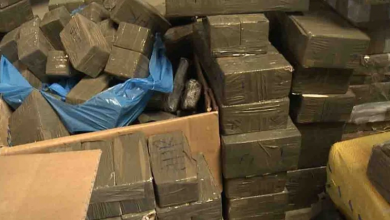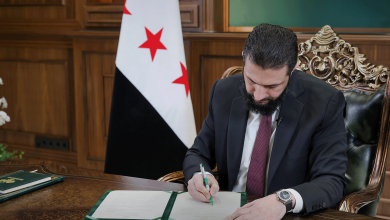Caracas – In a move signaling escalating tensions in the Caribbean, Venezuelan President Nicolas Maduro announced the immediate suspension of all existing gas agreements with Trinidad and Tobago on Monday evening. The decision comes in response to the twin-island nation’s hosting of a United States Navy destroyer, an action Caracas views as a direct threat and a sign of Trinidad and Tobago aligning itself as a “US aircraft carrier” against Venezuela.
Maduro, speaking on national television, stated, “Faced with the threat from Prime Minister Kamla Persad-Bissessar to transform Trinidad and Tobago into an aircraft carrier for the American empire against Venezuela, I have approved a temporary measure consisting of the immediate suspension of all effects of the energy agreement” between the two countries. He emphasized that this includes critical agreements related to gas exploration, production, and transportation.
The announcement followed a strong recommendation from Venezuelan Vice President Delcy Rodriguez and was met with sharp condemnation from Trinidad and Tobago’s Prime Minister Persad-Bissessar.
Persad-Bissessar vehemently rejected what she characterized as “blackmail” from Venezuela regarding the gas agreements. In a strongly worded statement, she asserted that Trinidad and Tobago, a small, English-speaking archipelago and long-standing ally of the United States, would not succumb to “any blackmail from the Venezuelans” and would not back down “from combating drug cartels.” She further emphasized that her nation’s future does not depend on Venezuela, nor has it ever.
“Our commitment to regional security and the fight against transnational crime is unwavering,” Persad-Bissessar stated. “We will continue to work with our international partners, including the United States, to ensure the safety and security of our citizens and the Caribbean region as a whole.”
The immediate trigger for Maduro’s decision is the presence of the USS Gravely, an Arleigh Burke-class guided-missile destroyer, in Trinidad and Tobago. The warship arrived on Sunday to participate in joint military exercises between the two countries. These exercises, according to the US Navy, are designed to enhance interoperability and strengthen security cooperation in the region. However, Venezuela views the deployment as a provocative act, particularly given the ongoing political and economic crisis in Venezuela and the strained relationship between Caracas and Washington.
The relationship between Venezuela and Trinidad and Tobago has deteriorated significantly since Persad-Bissessar assumed office in May 2025. Her administration has adopted a more assertive stance against the Maduro regime, openly supporting the US military presence in the Caribbean and frequently criticizing the Venezuelan government’s human rights record and democratic backsliding.
For more information about Culture, check our dedicated section.
This suspension of gas agreements has potentially significant implications for both countries. Trinidad and Tobago relies on Venezuela for a portion of its natural gas supply, which is crucial for its petrochemical industry, a major contributor to the nation’s economy. The agreements also involved potential joint ventures in offshore gas fields, projects now cast into uncertainty.
For Venezuela, the suspension represents a further blow to its struggling economy. While the gas exports to Trinidad and Tobago are not a major source of revenue, they provide a valuable stream of foreign currency and contribute to regional energy integration efforts.
Analysts suggest that Maduro’s decision is largely symbolic, intended to project strength and rally domestic support amid mounting internal and external pressures. However, the move also carries the risk of further isolating Venezuela and damaging its already fragile relationships with its neighbors.
“This is a calculated gamble by Maduro,” said Dr. Alisha Mohammed, a Caribbean political analyst at the University of the West Indies. “He’s betting that the economic pain inflicted on Trinidad and Tobago will be outweighed by the political benefits of standing up to what he perceives as US imperialism. But it’s a risky strategy that could backfire and further destabilize the region.”
The United States has yet to officially comment on the suspension of the gas agreements. However, a State Department spokesperson reiterated the US commitment to supporting democratic governance and the rule of law in the Caribbean region. They also emphasized the importance of peaceful resolution of disputes and respect for international law.
The situation highlights the complex geopolitical dynamics in the Caribbean, where long-standing territorial disputes, energy security concerns, and competing political ideologies create a volatile mix. The future of relations between Venezuela and Trinidad and Tobago, and the wider implications for regional stability, remain uncertain.



